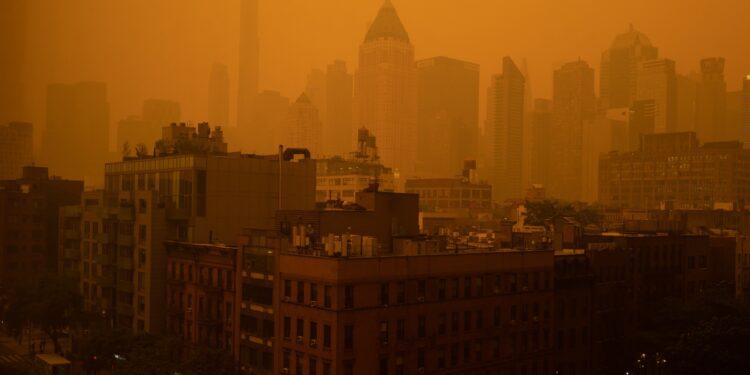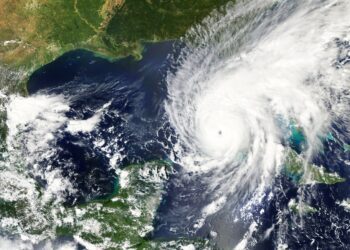The days of yellow and brown smoke transforming the likes of New York City and Washington, D.C. into a surreal landscape reminiscent of a post-apocalypse movie have finally passed, but the toxic soot from Canada’s wildfires that engulfed the East Coast last week has left a lingering threat.
As climate change brings more and more wildfires, Americans must now increasingly think about the consequences of air pollutants on their health.
Last week, health officials in the region issued stern health warnings about the smoke and warned residents to stay indoors. And while the short-term effects of exposure to wildfire smoke is well known, scientists have little information on its long-term impacts, although they have indicated that there’s reason to be concerned.
Microscopic pollutants released by the fires can infiltrate lungs and enter the bloodstream, potentially affecting other organs. They can also trigger the body’s immune system, producingan inflammatory response, with both short- and long-term implications.
The short-term impact of hoarseness, coughing and shortness of breath are evident, but, over time these can also lead to more severe illness.
A recent study of wildfires in California found that pediatric emergency room visits for asthma increased 112 percent in the days after exposure. Yet another study found a 7.2-percent increase in hospitalizations for respiratory conditions among adults over 65 when pollutant concentrations exceeded the safety limit.
And smoke exposure from wildfires has also been linked to cardiac disease. The Journal of the American Heart Association reported that ER visits for heart attacks increased 42 percent within a day of exposure to dense wildfire smoke.
Moreover, the health effects of wildfire smoke can last for months, leading to influenza and seasonal flu. After a bad wildfire season in 2012, flu rates in affected areas such as Montana were three to five times above normal.
And medical experts fear that high air particle levels might also increase susceptibility to the coronavirus, potentially reviving a global nightmare that nobody wants to relive.
By Leana S. Wen/WP












